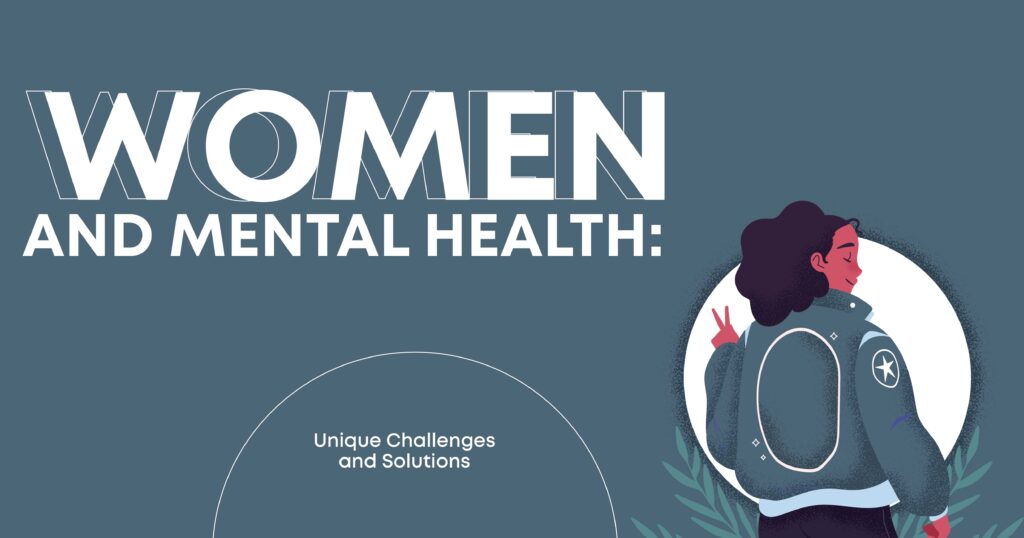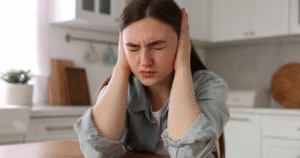Mental well-being shapes how we live, work, and interact with others. For women, mental health is influenced not just by internal biology but by the roles they’re expected to play, cultural pressures, and yes, even life stages. These elements combine in ways that make women more prone to certain mental health struggles.
Understanding the distinctive experiences is essential for developing effective, compassionate, and inclusive approaches to mental health care. This article examines the intricate dimensions of female healthcare by presenting applicable solutions.
Common Mental Health Disorders That Disproportionately Affect Women
No one is immune to mental health struggles. But it’s also true that some conditions show up more often, and more severely, in women. Why? It comes down to things like:
- Hormonal fluctuations
- Unequal societal roles
- Emotional labor
- Gender-based trauma
Here are some of the key disorders where women are often affected more than men:
| Mental Health Disorders | Description |
| Depression | Women are nearly twice as likely to suffer from depression. Hormones are part of the story, but so is the immense pressure women face to “do it all.” This condition often lasts longer and cuts deeper in women |
| Anxiety Disorder | Panic attacks, social anxiety, and generalized anxiety. They tend to occur more in women. Many develop these issues early and carry them into adulthood. |
| Post Traumatic Stress Disorder (PTSD) | PTSD in women often stems from sexual assault or domestic violence. The trauma leaves emotional scars that can affect everything from trust to daily functioning |
| Personality Disorder | This deals with motional instability, and yes, research shows women are diagnosed with it far more often. It brings impulsive behaviors and intense relationships |
Knowing which conditions affect women more is a step toward tailoring support systems that actually work.
Mental Health Center of San Diego
Hormonal Health and Its Role in Mental Wellness
Hormones are a big deal. They do more than control and maintain reproductive health; they influence how we feel, think, and even how we react to stress.
| Key Hormones | Description |
| Serotonin | Known for mood regulation, low levels of this can bring on depression or irritability. It also helps with sleep and appetite control. |
| Dopamine | This is your brain’s “feel-good” chemical. It fuels motivation and pleasure, but when it’s off-balance, people may feel flat or even hopeless. |
| Estrogen | It affects mood, focus, and emotional processing. A drop in estrogen can trigger sadness or forgetfulness. |
| Cortisol | The stress hormone. Too much of it might make you feel edgy, anxious, maybe even burned out. |
These chemical messengers can make or break emotional balance. When they’re off, mental health suffers. Understanding their roles helps women advocate for care that goes deeper than surface symptoms.
From Puberty to Menopause
Women go through major hormonal shifts throughout life. Each stage comes with unique mental health hurdles. Some expected, others less talked about.
Puberty hormones surge, leading to all sorts of emotional ups and downs. This comes with an emotional rollercoaster. It’s also a time when females deal with:
- Body image issues
- Sudden anxiety
- Self-esteem dips
Menstrual Cycle: Each month brings chemical changes that can impact mood.
- PMS (mood swings, tension)
- PMDD (a more severe form of PMS)
- Heightened anxiety or sadness
Pregnancy and Postpartum: Common disorders at this stage are:
- Antenatal depression (before birth)
- Postpartum depression (after birth)
- Overwhelming anxiety
Perimenopause and Menopause: Estrogen starts to decline. This often leads to:
- Disturbed sleep
- Low sex drive
- Mood changes
- Feelings of sadness or detachment
Each stage affects mental health differently, but none should be brushed aside. Women and mental health should be discussed throughout every chapter of life.
Cultural and Racial Considerations
Culture, background, and race shape how people experience mental illness and how they seek help.
In some communities, especially among black women and mental health circles, talking about emotional struggles is still taboo. Mental illness can be wrongly seen as weakness or “not praying enough.”
Discrimination adds another layer. Racism, microaggressions, and cultural invalidation can trigger stress responses similar to PTSD. This is often referred to as racial trauma.
Supporting Black Women and Mental Health Needs
It’s not enough to say we care. Support has to be real, specific, and culturally sensitive. Here’s how to better support black women and their mental health:
- Create space for open, judgment-free conversations
- Encourage therapy and break the stigma around it
- Believe them when they share their pain
- Connect them with professionals who understand their cultural context
- Promote rest, community, and emotional expression
Mental health support must evolve to include intersectionality. Otherwise, it misses the mark.
Do Women and Men Access Mental Health Care Differently?
The short answer is yes. Women are more likely to seek therapy, talk about emotions, and get a diagnosis. But they also face more stigma, especially around parenting and emotional regulation.
Men often avoid treatment. Social norms push them to be “tough” or bottle things up. This can delay care or lead to misdiagnosed conditions.
Let’s look at the female mental health statistics:
- 49% of women live with some form of mental illness
- 50% of those with depression are women
- 68% of anxiety diagnoses are in women
So, if you’re asking, “Do men and women access mental health care differently?” The numbers say yes. The experiences say yes. And care models need to reflect that.
Mental Health During and After Pregnancy
Pregnancy is transformative. But emotionally? It’s intense. The body changes, sleep takes a hit, and the mind is on overdrive.
Here are common mental health struggles faced by new or expectant mothers:
| Common Mental Health Concerns | Description |
| Antenatal Depression | Emotional heaviness during pregnancy. It can affect bonding and daily functioning. |
| Postpartum Depression (PPD) | Shows up after childbirth. It includes deep sadness, detachment from the baby, and severe anxiety. |
| Anxiety | Worry that won’t go away, constant fear over the baby’s well-being, or racing thoughts. |
These aren’t rare. They’re real. And they deserve more attention than they currently get.
Mental Health Center of San Diego
Effective Mental Health Treatments for Women
Many women will benefit from a layered, flexible approach.
| Effective Mental Health Treatment | Descriptions |
| Psychotherapy | Also called talk therapy. It’s a safe place to work through feelings and patterns with a trained expert. |
| Medication | Sometimes, medication like antidepressants or anti-anxiety prescriptions is essential. They help stabilize mood and reduce symptoms. |
| Lifestyle Changes | Moving more, sleeping better, and eating well really do make a difference. Mindfulness practices like meditation can help, too. |
The most successful treatment plans mix and match. And importantly, they adapt as the woman’s life changes.
Finding Personalized Support – Mental Health Center of San Diego Is Here
Women carry a lot. The roles, the expectations, the biological shifts. It all adds up. And when it affects mental health, we can’t afford to ignore it.
Whether it’s discrimination, trauma, or hormonal shifts, women and mental disorders deserve serious, thoughtful care.
To get the best care out there, contact Mental Health Center of San Diego today. We offer custom support, whether you need individual therapy, group sessions, or just someone who gets what you’re going through, we’re here. You’re not alone. Reach out. Let’s walk this path together.
FAQs
What are common mental health issues in women?
Depression, anxiety, PTSD, borderline personality disorder, and body image disorders.
How does hormonal health affect mental health?
Hormones like estrogen and serotonin directly influence mood, stress response, and sleep. Imbalances can lead to emotional distress.
Do women experience anxiety more than men?
Absolutely. Women, especially those who’ve endured trauma, are more prone to anxiety disorders.
What are the mental health statistics for women?
Around 49% of women experience mental illness. Depression and anxiety are the most common.
Mental Health Center of San Diego
How can women manage mental stress?
Healthy habits help: exercise, open conversations, enough sleep, and therapy if needed. Don’t go it alone.









